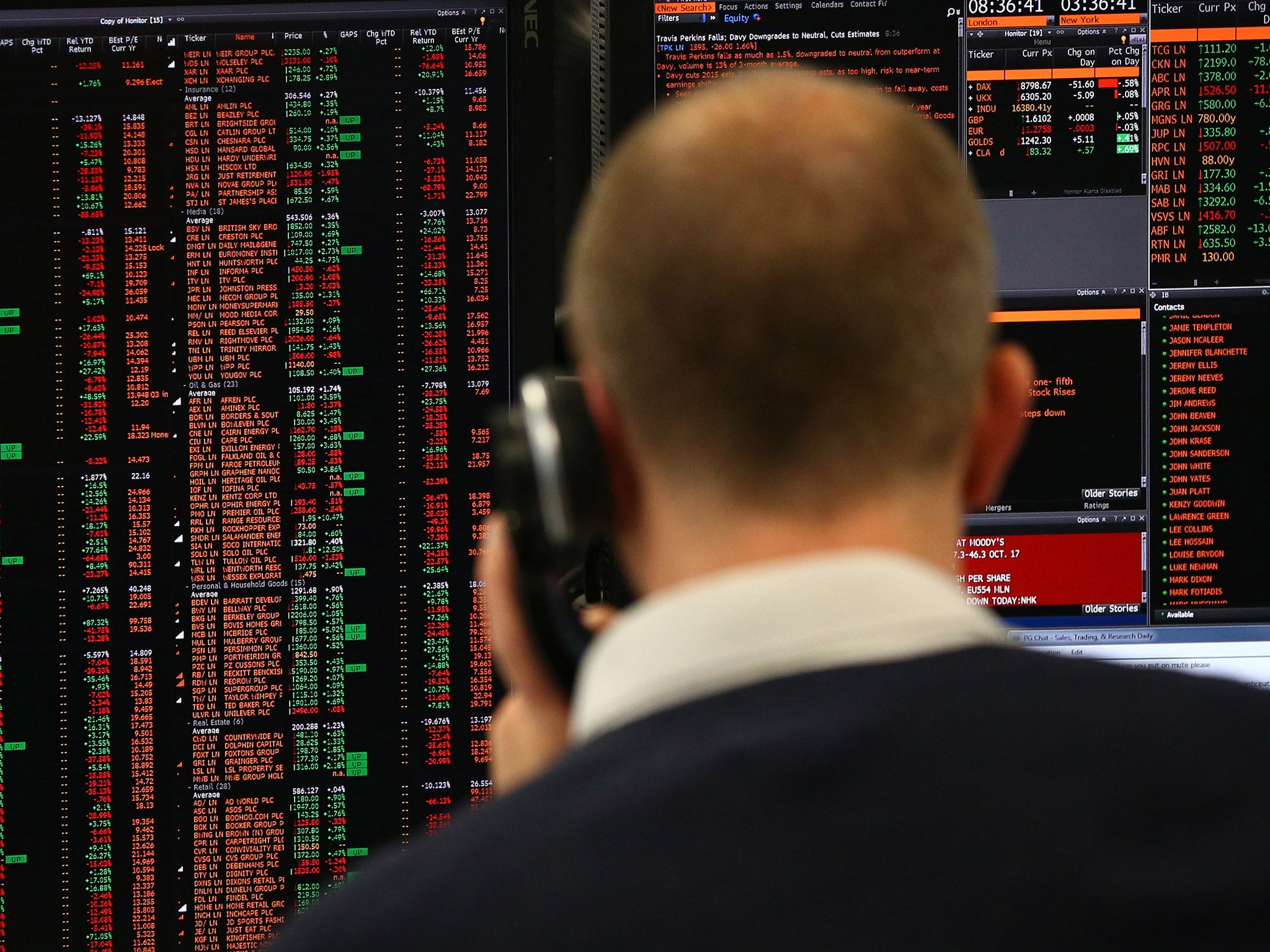After US rate rise, the UK will follow suit soon, but what is the ‘new normal’?
Global view: Countries taken as a whole have been big beneficiaries of cheap US money

Your support helps us to tell the story
From reproductive rights to climate change to Big Tech, The Independent is on the ground when the story is developing. Whether it's investigating the financials of Elon Musk's pro-Trump PAC or producing our latest documentary, 'The A Word', which shines a light on the American women fighting for reproductive rights, we know how important it is to parse out the facts from the messaging.
At such a critical moment in US history, we need reporters on the ground. Your donation allows us to keep sending journalists to speak to both sides of the story.
The Independent is trusted by Americans across the entire political spectrum. And unlike many other quality news outlets, we choose not to lock Americans out of our reporting and analysis with paywalls. We believe quality journalism should be available to everyone, paid for by those who can afford it.
Your support makes all the difference.It has begun, and you might think about time too. Over the next few years interest rates worldwide will follow the Fed’s action and gradually be nudged upwards. The path will not be even, for there will be steps back as well as forwards, and in any case the different regions of the world will move more quickly than others. But the general direction is clear. Until there is another global recession, which one day will happen, interest rates will gradually return to normal.
What is normal? Will the “new normal” be the same as the “old normal”? History gives us only the vaguest of guides. We know that rates now are the lowest they have ever been. Yes, ever. They are the lowest since the founding of the Bank of England in 1694, the emergence of organised banking in Europe in the Middle Ages, indeed since the Babylonian Empire around 2000BC. We may have come to think of ultra-cheap money as commonplace. But historically it is profoundly abnormal.
The price of money is influenced deeply by inflation. So the rate at which interest rates rise will be shaped by what happens to prices. Will inflation return to the target of around 2 per cent, a little below in the case of Europe, or will it remain well below that, as it is now?
The general expectation is that the 2 per cent level is reasonable. If that turns out right, then the likely level of short-term rates will be a little above that, and the longer-term rates that help determine mortgages, perhaps 4 per cent or 5 per cent. That, at least, has been the general relationship in the past.
Against this is the view, evident both in the US and UK, that in future the general level of interest rates will be lower than in the past. Even when inflation returns to 2 per cent, governments and central banks will seek to hold rates down. There is narrow self-interest in that.
Low interest rates enable a government to hold down the cost of servicing its national debt. Taxpayers benefit at the expense of savers, and taxpayers apparently have more political clout. But in addition relatively low rates make it easier to finance large investment projects and hence support growth. So it may well be that the new normal level of rates is lower than the old normal one. We live in a deeply indebted world, and the impact will vary in different parts of it.
If the events of last night remind us of anything, it is that the US still dominates the world economy. But while the UK is likely to follow the US reasonably swiftly, continental Europe seems likely to lag. Indeed the European Central Bank is under pressure to cut rates, although they are already below zero. Such negative interest rates are unprecedented – why hold euros if you have to pay for the privilege? – and many forecasters think that the dollar will climb further against the euro. There is an implicit further question: if the US is getting back to normal, why isn’t the eurozone?
In the rest of the world there will be different concerns. Debts are high in many emerging economies, notably China. Indeed the emerging countries taken as a whole have been big beneficiaries of cheap US money. As that gradually comes to an end, pressure on some borrowers will rise, and no one can know where the fissures will open up. As Warren Buffett famously observed: “Only when the tide goes out do you discover who’s been swimming naked.”
Tonight the tide started, at last, to ebb.
Join our commenting forum
Join thought-provoking conversations, follow other Independent readers and see their replies
Comments